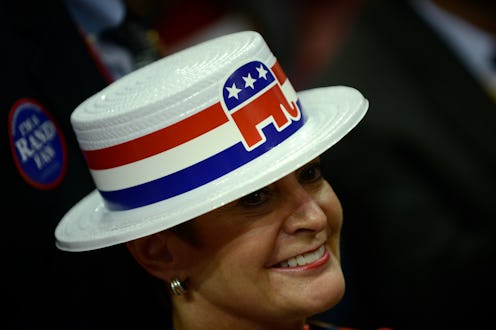News
Can The Delegate Rules Change At The Convention?
It's become a very real possibility that Republicans will have a brokered convention this year. If they do, all hell will break loose, basically, with candidates and their campaign scrambling for every last delegate's support they can on the convention floor, all on live TV. But a big question looms large: Can the delegate rules be changed at the convention?
Yes, they can. The RNC rules committee has quite a bit of latitude to change the delegate rules at the convention itself. Some of them, like the notorious Rule 40, were imposed with the explicit understanding that they could be changed or modified at the convention if necessary. But some have argued that all of the RNC's convention rules could essentially be tossed out at the beginning of the convention if the Rules Committee decides to.
The most visible proponent of this theory has been Curly Haugland, an otherwise-obscure official in the North Dakota Republican Party. Haugland went on CNBC and, to the outrage of many Republican primary voters, declared that "political parties choose their nominee, not the general public."
Haugland cited several reasons for this. One is the fact that the RNC's delegate rulebook contains internal contradictions, so clearly some of the rules will need to be modified or tossed. Furthermore, the language used at the beginning of the rulebook clearly states that the rules only apply "until the next convention" — which, technically, refers to the 2016 convention. And then there's the more broad fact that the RNC is a private corporation that, from a legal standpoint, can allocate delegates however it pleases.
It's entirely possible, then, that all of the rules governing how delegates are allocated and how they must vote will be thrown out at the start of the convention. There are infinite ways this could play out, and depending on what specifically the RNC's Rules Committee decides to do, the end result could be Donald Trump doesn't get the nomination despite winning more delegates than anybody else.
But the biggest question isn't whether the RNC has the option of doing this. It's whether it would actually want to do this.
Yes, many of the powers-that-be in the Republican Party are appalled at the notion of Trump becoming the party's standard bearer in 2016. But the fact remains that so far, he's received more votes in the primary than any of the other Republican candidates. And that makes it hard to justify not giving him the nomination.
If GOP elders deny Trump the nomination via a last-minute rule change at the convention, they're taking a serious risk: That Trump, feeling jilted, will do everything possible to exact revenge on the Republican Party, up to and including a third-party run for the presidency. Given that Trump has no history with or allegiance to the GOP itself, it's plausible — and almost certain, if you ask me — that he'll try to sabotage the party's chances in November if they rob him of the nomination. A third-party run would absolutely accomplish that, as it would split the Republican vote and potentially hand the election to Hillary Clinton.
The biggest question isn't whether or not the RNC can change the delegate rules at the convention. It's whether it wants to risk losing the election to do so.
